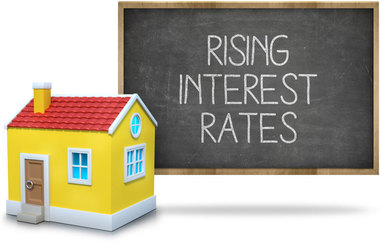National average 30-year fixed rate mortgage interest rates have been close to or well under four percent for nearly a decade. They should stay that low forever, right?
Don’t bet on it. Low unemployment, rising salaries, fears of inflation and an increasing federal deficit are among many reasons why interest rates are expected to rise in 2018. What happens is that the Federal Reserve raises overnight borrowing rates to banks, causing banks to pass those higher costs onto borrowers. Car loans, credit cards and mortgage loans become more expensive.
But don’t let rising rates discourage you from buying a home. While you’re going to pay more for your loan in interest, with a correspondingly higher monthly payment, you’re getting higher standard tax deductions in 2018 ($13,000 to $24,000 for couples filing jointly, $6,500 to $12,000 for single filers.) Child care credits are more generous, and your mortgage interest payments are still tax deductible, up to loans of $750,000 or more.
According to the mortgage calculator at Bankrate.com, a home purchased by a borrower with excellent credit for $400,000, with 20 percent down ($80,000) and a benchmark 30-year fixed-rate mortgage at 4%, would have a monthly payment of $1527.73. If rates hit 4.5%, the same borrower would pay $1621.39 monthly, or a difference of about $94. Roughly, every increase of an eighth of a point translates to a little less than $25 per month more in your payment. As always, consult your tax professional for specific advice.
Compared that to the tax breaks you’re getting, you’re ready to go.

